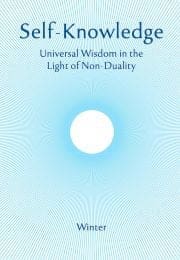Some Teachings from the Katha Upanishad
One thing that all human lives have in common is their unpredictability. There always seems to be something that escapes our control or eludes our knowledge. On the other hand, to apparently lose is to win if what happens to us prompts us to reflect on the meaning and purpose of life as a whole, and if this thirst for understanding leads us to enquire into the great wisdom traditions. Then our quest for deeper understanding and fulfilment can become clearly focused and progressive.
This is the situation of the pupil in the Katha Upanishad, who initially wants to know whether the self goes on existing after death—a question which develops into a need to realise conscious immortality through awakening to the knowledge of our ultimate Self as the sole reality of the universe. This liberating knowledge, and the inner transformation of our higher faculties, are the themes of the teaching that follows.
The higher aspect of our nature is expressed through the wise application of our intellect and our will. By intellect is meant our innate sensitivity to truth and falsehood. By will is meant our power to execute the decisions of the intellect that are in harmony with our higher purpose.
This composite faculty of intellect and will has the authority to free us from the pressure of emotional extremes, and it also has the power to guide our thoughts into enlightened channels. Thus this higher phase of our nature is essentially a ruling principle, and it is destined to play a far-reaching role in our self-training for transcendence. One of its Sanskrit names is ‘buddhi’, from the root ‘budh’, meaning to awaken.
The activities of the mind are known and evaluated at all times by the buddhi, which is subtle and inward. It is the buddhi which constantly surveys what we experience and says ‘this is true or not’ and ‘this is what should be done or not’. When impure, the buddhi asserts: ‘The world I see through the senses is real, and I am this individual mind and body, and my worldly interests are paramount.’ With wise training and guidance the buddhi begins to understand that Reality transcends the mind-world and that Self transcends individuality. And when purified, the buddhi, as the most inward and sensitive element of our psychology, may serve as a mirror in which is reflected the light of pure consciousness, and a way opens to realisation of that light as our ultimate Self and the true Being in all.
Subscribe or enrol for free guest access to read all of this article and Self-Knowledge online.
Already subscribed or enrolled? Log in:


